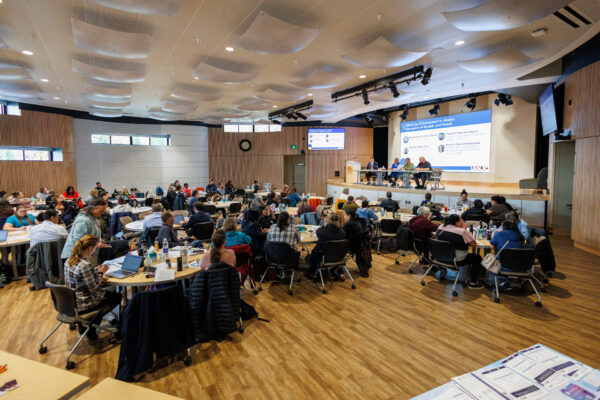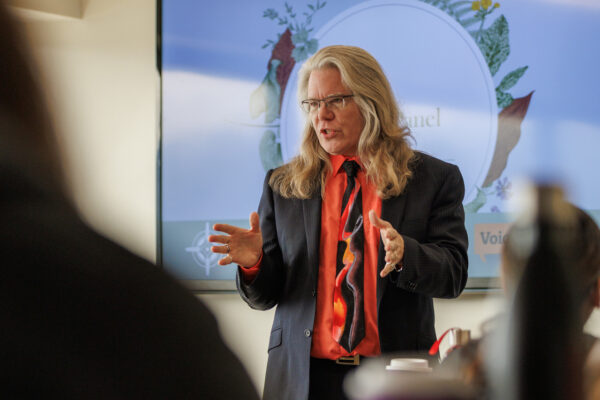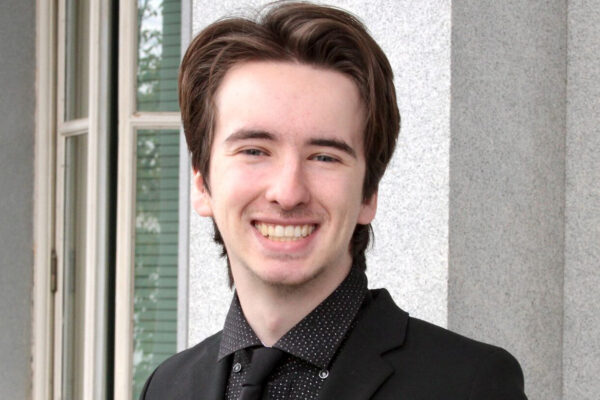The Alaska Native Justice Center’s annual Voices for Justice fundraiser supports programs that advocate on behalf of victims of domestic abuse. For former participant Marlene Mack, hearing the words “I believe you” changed everything.
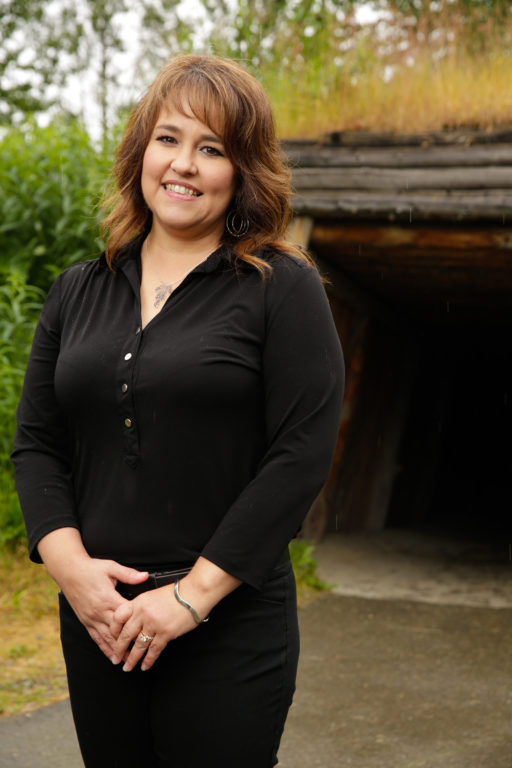 I believe you. Three small words, but when Marlene Mack first came to the Alaska Native Justice Center (ANJC), her greatest fear was that she would not hear them.
I believe you. Three small words, but when Marlene Mack first came to the Alaska Native Justice Center (ANJC), her greatest fear was that she would not hear them.
“My husband at the time was undiagnosed with a mental disorder,” she explained. “We would go through a cycle — he would be convinced people were following him, that someone was after him. He accused me of selling drugs, of being part of the FBI. He got violent. It got to the point where the kids and I would go to hotels to get away from his rage.”
After a drug-fueled fight got Marlene’s husband arrested and assigned to a court-ordered facility to address his addiction, she hoped that getting clean would improve his anger. But things only got worse. “I started reaching out for help, but it was hard,” she said. “He wouldn’t allow me to have a cell phone without monitoring it. I couldn’t have money for food.” Eventually, Marlene found herself at ANJC.
“I walked into ANJC scared to death — I wondered if anyone was going to believe me.” Because she was afraid of her husband’s retaliation, Marlene had never reported any of his abuse.
She met Mike Schaeffer, ANJC’s staff attorney at the time, and went through the interview process to see if he would take on her case. “At first, Mike was very lawyer-y, asking tough questions. There was a lot of anxiety for me because sharing your story is tough. After he listened to my situation, he said he would take my case.
“It was a huge relief,” Marlene said. “Finally, somebody was seeing and hearing me.”
That was only the beginning of a long, tough process — but along the whole way, ANJC was there to support Marlene and her children. The ANJC advocacy team helped her find a home for her family and took her to her first food bank. Mike not only helped her obtain a protective order, but explained what it meant and what she needed to do to enforce it. ANJC helped and encouraged her get therapy for both her and her children.
Most of all, though, the people on ANJC’s advocacy team made Marlene feel like she had a voice.
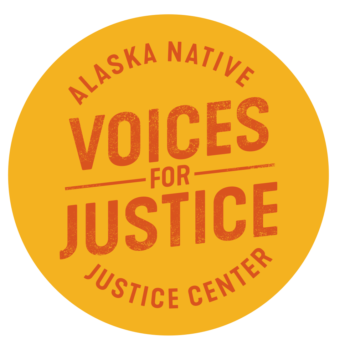 “My self-care was just as important to them,” she elaborated. “I would share with Mike that I was still sleeping on the couch because I was afraid my ex-husband would get into the house — which he did several times. I would find him hovering over me. Just to have that contact and support from ANJC, to be heard and believed, was so important.”
“My self-care was just as important to them,” she elaborated. “I would share with Mike that I was still sleeping on the couch because I was afraid my ex-husband would get into the house — which he did several times. I would find him hovering over me. Just to have that contact and support from ANJC, to be heard and believed, was so important.”
Marlene is still involved with ANJC today — no longer as a client, but as a Program Manager for the Advocacy team.
“After going through something like that, you want to give back,” she said. “I was giving to ANJC through Pick.Click.Give, but I wanted to do more. Then this position opened.”
Marlene does what she can to get the word out about ANJC’s services for Alaska Native people and others, and she hopes support from others in the community will help raise awareness about ANJC.
She is also able to share her own experience with individuals who find themselves going through what she went through.
“I hope it’s powerful for people to see that we all share the same terror, the fear that nobody will believe you, the struggle to rebuild through that process. I think sharing my own story with clients has empowered others to say, ‘Yes, I can do this and will get through it.’”
In other words, when someone comes to ANJC with a story they’re afraid to share, Marlene gets to be the one who can say to them those three crucial words: “I believe you.”

